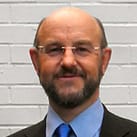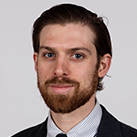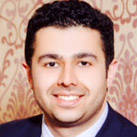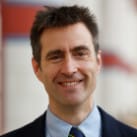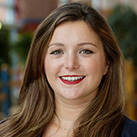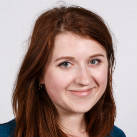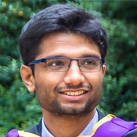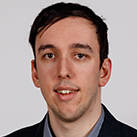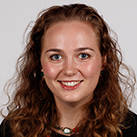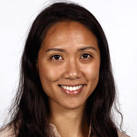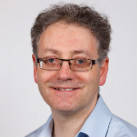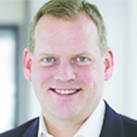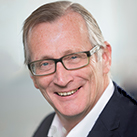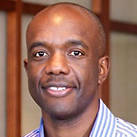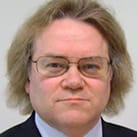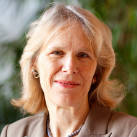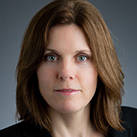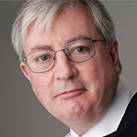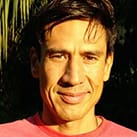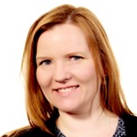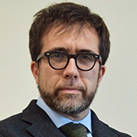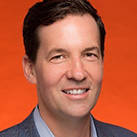8th Risk Summit (2017)

22 Jun 2017
09:00 -19:30
23 Jun 2023
09:00 -16:15
Times are shown in local time.
Open to: Specialists and business managers, including threat specialists, academics, policy-makers, practitioners and advisors

Cambridge Judge Business School
Trumpington St
Cambridge
CB2 1AG
United Kingdom
Managing Risk in a Smarter World
In June 2017 the Cambridge Centre for Risk Studies will bring together leaders and decision makers from businesses, governments, academia and NGOs to explore salient topics in risk management. The summit will be held at Cambridge Judge Business School and a conference dinner following at Clare College, Cambridge.
This year’s summit theme is ‘Managing Risk in a Smarter World’, and will explore the overall risks and opportunities for risk managers in today’s evolving technological landscape. The greater adoption of automation by the finance and insurance sectors, alongside other industries, will also have significant impact on public policy, the labour market and privacy and personal data. These topics alongside artificial intelligence, fintech, insurtech, virtual currencies and disintermediation platforms will be discussed at the Summit within the context of managing risks.
Keynote speakers
- John Thornhill, Innovation Editor, Financial Times
- Professor Christoph Loch, Director and Professor of Management Studies, Cambridge Judge Business School
Download the Summit's programme
Registration closed
Registration for this event is closed. If you are interested to hear about upcoming events and other Centre-related news and resources, please join our mailing list.

Principal knowledge partners
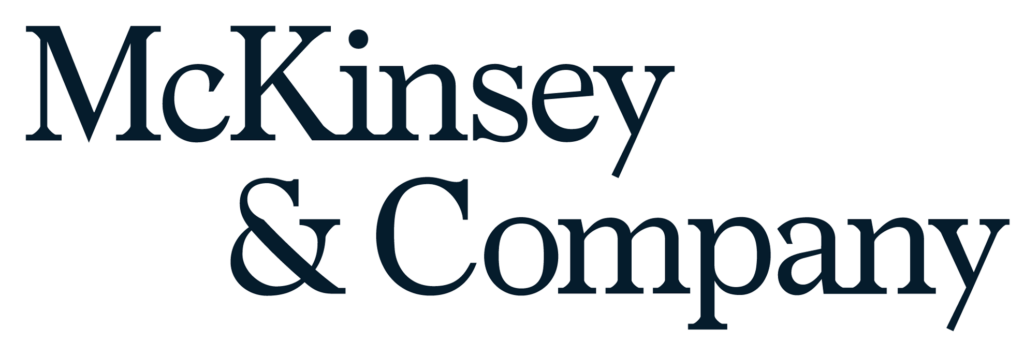

Meeting partners
Programme
Day 1
Thursday 22 June 2017
09:00 – 14:15
Cambridge Centre for Risk Studies Research Showcase
All summit attendees welcome to attend and hear about the latest research activities occurring at the Risk Centre.
15:30 – 16:00
2017 Risk Summit Registration and Coffee/Tea
16:00 – 16:15
Risk Summit Welcome
Dr Michelle Tuveson, Executive Director, Cambridge Centre for Risk Studies
16:15 – 17:05
Plenary Session 1: What Does a Smart World Look Like?
16:15-16:45 – Keynote: Data Capitalism in the Wilds of Artificial Intelligence – John Thornhill, Innovation Editor, Financial Times
16:45-17:05 – A Future That Works: Automation, Employment and Productivity – Dr James Manyika, Senior Partner and Director, McKinsey Global Institute
17:05 – 18:00
Risk Summit Panel: Status and Trends of Automation and Societal Impacts
Moderated by: Andrew Freeman, Risk Fellow, Cambridge Centre for Risk Studies and Director, Finance Foundation
- Tara Foley, Customer, Change and Innovation Director, Risk Division, Lloyds Banking Group plc
- Alan Laubsch, Director, Natural Capital Markets, Lykke Corporation
- James Manyika, Senior Partner and Director, McKinsey Global Institute
- Professor Daniel Ralph, Academic Director, Cambridge Centre for Risk Studies and Professor of Operations Research, University of Cambridge Judge Business School
- John Thornhill, Innovation Editor, Financial Times
18:00 – 19:30
Networking Reception at Clare College
Day 2
Friday 23 June 2017
09:00 – 09:30
Risk Summit Registration and Coffee
09:30 – 09:40
Plenary Session 2: Status and Trends towards a Smart World
Chair: Dr Andrew Coburn, Director of the Advisory Board, Cambridge Centre for Risk Studies and Senior Vice President, RMS
09:40 – 10:10
Keynote: Smarter World vs Smarter Risk: How Technology and Innovation Are Driving Complexity and Risk
Professor Christoph Loch, Director and Professor of Management Studies, Cambridge Judge Business School
10:10 – 10:35
Embodied Vulnerabilities: Why I am Hacking My Own Heart
Dr Marie Moe, Senior Research Assistant, SINTEF Digital
10:35 – 11:00
Ethical Considerations in Artificial Intelligence and Autonomous Systems
Kay Firth-Butterfield, Barrister-at-Law, Distinguished Scholar, Robert S. Strauss Centre for International Security and Law, University of Texas, Austin, and Co-Founder, Consortium for Law and Ethics of Artificial Intelligence and Robots
11:00 – 11:30
Coffee break
11:30 – 12:00
Plenary Session 3: Implications of Data and Technologies to Business Models
Chair: Simon Ruffle, Director of Research and Innovation, Cambridge Centre for Risk Studies
11:30-11:50 – Future Gazing of Technology from a Liability Perspective – Dr Robert Reville, President and CEO, Praedicat
11:50-12:00 – Your Digital Personality: A Psychometric Compilation – Dr David Stillwell, Deputy Director, Cambridge Psychometric Centre, and Lecturer in Big Data Analytics and Quantitative Social Science, Cambridge Judge Business School
12:00 – 12:45
Panel Discussion: Data Privacy vs Value. Security, Privacy and Protection of Data
Moderator: Dr Michelle Tuveson, Executive Director, Cambridge Centre for Risk Studies
- Rolf Riemenschnitter, Senior Advisor Global Risk Practice, McKinsey, and Former MD of Cybersecurity, Deutsche Bank
- Dr David Stillwell, Deputy Director, Cambridge Psychometric Centre, and Lecturer in Big Data Analytics and Quantitative Social Science, Cambridge Judge Business School
- Phil Westcott, Director of IoT Global Practice & Partnerships for Watson Internet of Things, IBM
- Dr Jen Daffron, Research Associate, Cambridge Centre for Risk Studies
12:45 – 13:00
McKinsey Risk Prize Announcement
Dr Sven Heiligtag, Principal, McKinsey & Company
13:00 – 14:00
Lunch and Risk Summit Photograph
14:00 – 15:00
Plenary Session 4: What Will Businesses Seek from Financial Services in a Smarter World?
Chair: Philip Brice, Head of Risk Management, BP Treasury
14:00-14:30 – Historical Perspective on the Evolution of Currencies and Payment – Dr Anthony C. Hotson, Associate Member of the History Faculty, University of Oxford, and a Research Associate of the Centre for Financial History, University of Cambridge
14:30-15:00 – Innovation in Banking and Financial Services – Rémi Bourrette, Head of Strategic Innovation Investments, HSBC
15:00 – 16:00
The Cambridge Risk Debate
Chair: Mark Gilbert, Columnist, Bloomberg Gadfly
For the motion:
- Professor Richard Olsen, Founder and CEO, Lykke
- Cosimo Pacciani, CRO, European Stability Mechanism
Against the motion:
- Dame Sandra Dawson, KPMG Professor Emeritus of Management Studies, Cambridge Judge Business School
- Tim Jones CBE, Co-founder and CEO, Tibado and former CEO of NEST Pensions
16:00 – 16:15
Summary and conclusions
Professor Daniel Ralph, Academic Director, Cambridge Centre for Risk Studies and Professor of Operations Research, Cambridge Judge Business School
Day 1: Special Topics Seminar
Session 1: Emerging and Systemic Risk Research
09:00 – 09:30
Registration and coffee
09:30 – 09:45
Cambridge Centre for Risk Studies Research Overview
Professor Daniel Ralph, Academic Director of the Cambridge Centre for Risk Studies
09:45 – 10:00
Cyber Threat Actors: Motivations and Targets
Andrew Smith, Research Assistant at the Cambridge Centre for Risk Studies
10:00 – 10:15
Accumulation Risks from Cyber Terrorism
Tamara Evan, Research Assistant at the Cambridge Centre for Risk Studies
10:15 – 10:30
The Cloud: Architecture and Loss Potential
Dr Jennifer Daffron, Risk Researcher at the Cambridge Centre for Risk Studies
10:30 – 10:45
Benefits of Improving Infrastructure Resilience
Dr Edward Oughton, Research Associate at the Cambridge Centre for Risk Studies
10:45 – 11:15
Coffee Break
Day 1: Special Topics Seminar
Session 2: Multi-Threat Research
11:15 – 11:30
The Global Exposure Accumulation and Clash Project: Multi Line Data Schema
Kayla Strong, Research Assistant at the Cambridge Centre for Risk Studies
11:30 – 11:45
Advancing the City Risk Index
Dr Ali Shaghaghi, Research Assistant at the Cambridge Centre for Risk Studies
11:45 – 12:00
Trillion Dollar Catastrophe Scenarios
Jessica Tsang, Research Assistant at the Cambridge Centre for Risk Studies
12:00 – 12:15
Can Natural Catastrophes Impact the Financial Markets?
Arjun Mahalingam, Research Assistant at the Cambridge Centre for Risk Studies
12:15 – 12:30
The Insurance Gap & Post-Catastrophe Recovery
Dr Andrew Skelton, Research Associate at the Cambridge Centre for Risk Studies
12:30 – 13:30
Lunch
13:30 – 13:45
Cambridge Risk Framework API & Dashboard Technology
Simon Ruffle, Director of Research & Innovation at the Cambridge Centre for Risk Studies
13:45 – 14:00
Towards the Resilient Enterprise: Corporate Risk Profiling
Dr Michelle Tuveson, Executive Director at the Cambridge Centre for Risk Studies
14:00 – 14:15
Use Cases of Risk Research at the Cambridge Centre for Risk Studies
Dr Andrew Coburn, Director of Advisory Board
Resources
Use Cases of Risk Research at Cambridge Centre for Risk Studies
Dr Andrew Coburn
Director of Advisory Board, Centre for Risk Studies
Benefits of Improving Infrastructure Resilience
Cambridge Risk Framework API & Dashboard Technology
Cambridge Centre for Risk Studies Research Overview
Professor Daniel Ralph
Academic Director, Centre for Risk Studies
Towards the Resilient Enterprise: Corporate Risk Profiling
The Cloud: Architecture & Loss Potential
Assessing the Future Threat of Cyber Terrorism
Can Natural Catastrophes Impact Financial Markets?
Global Exposure Accumulation and Clash (GEAC)
Keynote speakers
Professor Christoph Loch
Director of Cambridge Judge Business School
Professor Christoph H Loch is the Director (Dean) of Cambridge Judge Business School. Since 2011, Cambridge Judge has progressed as one of the top 20 business schools in the world, with a high evaluation of its research by the UK government (REF) and with research centres that successfully combine the creation of research output of the highest academic quality with a tangible impact on business practice and society.
Cambridge Judge Business School actively supports the Cambridge Cluster, helping entrepreneurial talent development and commercialisation of new ideas; enhancing management development, enabling growth, and sharing thought-leadership.
Professor Loch’s research focuses on the management of innovation processes, and project management more broadly; including innovation strategy; projects under high uncertainty; the emotional aspect to the motivation of professional project workers, and project supervision and governance.
Before coming to Cambridge Judge Business School in 2011, Professor Loch was Chaired Professor of Technology and Operations Management at INSEAD, where he also served as Dean of the PhD programme and as the director of the INSEAD Israel Research Center. He served as department editor and Associate Editor of Management Science, Manufacturing & Service Operations Management and Production and Operations Management, and as chair of the Behavioral Operations Section of INFORMS.
Professor Loch holds a PhD from the Graduate School of Business at Stanford University, an MBA from the University of Tennessee in Knoxville, and a Diplom-Wirtschaftsingenieur degree from the Darmstadt Institute of Technology in Germany.
In 2012, Professor Loch was identified in a benchmarking study as one of the top 10 innovation researchers world-wide. He serves on the supervisory board of an educational software startup company and is a member of the Cambridge United Football Club board of directors.
John Thornhill
Innovation Editor, Financial Times
John Thornhill is the Innovation Editor at the Financial Times, writing a regular column on the impact of technology. He is also the founder of the FT125 forum, which holds monthly events for senior business executives, and host of Tech Tonic, the FT’s weekly podcast on technology.
John was previously deputy editor and news editor of the FT in London. He has also been Europe editor, Paris bureau chief, Asia editor, Moscow correspondent and Lex columnist.
Speakers and panellists
Rémi Bourrette
Head of Strategic Innovation Investments, HSBC
Rémi heads Strategic Investments within the Innovation Group of HSBC. His team invests in young and growing companies, with a view to develop business partnerships. It also manages a portfolio of financial market infrastructure investments.
Previously Rémi, was Head of Business Development for HSBC Global Banking and Markets, focusing on the development of new business initiatives.
Rémi joined HSBC France (CCF at the time) in 1994 from the interest derivatives desk of Credit Lyonnais (New York). After three years in financial engineering Rémi took responsibility for business development in the asset management division of the bank. He then became Head of Market and Model Risks for HSBC France and a member of its management committee.
He moved to London in 2005 for a global role in derivatives risk before joining HSBC Asset Management as Global Head of Investment Solutions.
Rémi graduated from Ecole Polytechnique (Paris X88) and Ecole Nationale de L’administration Economique (Paris 1993). He also holds a Master of Advanced Studies in financial modelling from Paris Diderot University (also known as Paris 7).
Rémi is a board member of LCH Clearnet SA, a leading clearing house.
Andrew Coburn
Director of Advisory Board, Cambridge Centre for Risk Studies
Andrew is a Founder and Director of the Centre for Risk Studies’ External Advisory Board, and Senior Vice President at Risk Management Solutions, the leading provider of catastrophe risk models to the insurance industry. He is also a Fellow of Cambridge Judge Business School.
Kay Firth-Butterfield
Barrister-at-Law, Distinguished Scholar, Robert S. Strauss Center for International Security and Law, University of Texas, Austin
Co-Founder, Consortium for Law and Ethics of Artificial Intelligence and Robotics
Kay Firth-Butterfield is a Barrister-at-Law and part-time Judge in the United Kingdom where she has also worked as a mediator, arbitrator, business owner and Professor of Law. In the United States, Kay is Executive Director of AI-Austin and former Chief Officer, and member, of the Lucid.ai Ethics Advisory Panel (EAP). She is a humanitarian with a strong sense of social justice and has advanced degrees in Law and International Relations.
Kay advises governments, think tanks and non-profits about artificial intelligence, law and policy. Kay co-founded the Consortium for Law and Policy of Artificial Intelligence and Robotics at the University of Texas and as an adjunct Professor of Law teaches Artificial Intelligence and Emerging Technologies: Law and Policy. She is a Distinguished Scholar of the Robert E. Strauss Center for International Security and Law.
Kay thinks about and advises on how AI and other emerging technologies will impact business and society, including how business can prepare for that impact in its internal planning and external interaction with customers and other stakeholders and how society will be affected by these technologies. Kay speaks regularly to international audiences addressing many aspects of these challenging changes.
Andrew Freeman
Risk Fellow, Centre for Risk Studies and Director, Finance Foundation
Andrew Freeman is the Founder and Managing Director of Cambridge Research Associates, a research and advisory company that specialises in risk-related work for global clients. Over a 25-year career he has written numerous articles and books, first as a journalist on The Economist and latterly in his role as a Senior Knowledge Expert in Risk at McKinsey. Between 2009 and 2011 he was Executive Director of the Center for Financial Services at Deloitte LLP, overseeing its research programme on the financial services industry. In 1998 he published Seeing Tomorrow: Rewriting the Rules of Risk, co-authored with Ron Dembo, founder of Algorithmics.
Andrew is a graduate of Balliol College, Oxford and was also elected a Domus Senior Scholar at Merton College, Oxford.
Dr Sven Heiligtag
Principal, McKinsey & Company
Sven is a Partner in McKinsey & Company´s Hamburg office. Sven is a leader in McKinsey’s Risk Management Practice as well as in the Electric Power & Natural Gas Practice. He is responsible for all Corporate Risk topics and is leading our energy trading and risk management survey in Europe.
He has deep experience in advising clients in the energy and natural resources industries on challenges in risk management, corporate finance, strategy and organisation.
Sven has a master’s degree and a PhD in Chemistry from the University of Hamburg.
Tim Jones, CBE
CEO and Co-Founder, Tibado and former CEO of NEST Pensions
Tim Jones is an experienced CEO with specialisms in financial transactions including payment systems, retail banking and pensions. Tim is the former CEO of NEST Pensions in the UK and serves additionally as an Independent Director at ITG, a NYSE listed institutional broker dealer in New York.
Earlier in his career, Tim spent seventeen years at NatWest Bank in the UK where, from 1990, he led the development of Mondex digital cash, as well as becoming Chief Executive of Retail Banking in the late 1990s.
Tim is now introducing Tibado, a new global digital cash venture, to which he will be devoting his full attention from 2016 as he concludes his period leading NEST.
Tim is married with three grown up children and has homes in East Sussex and London.
James Manyika
Senior Partner & Director, McKinsey Global Institute
James Manyika is a senior partner at McKinsey & Company and one of the three global leaders of the McKinsey Global Institute (MGI), McKinsey’s business and economics research arm. James is also a member of McKinsey’s Shareholder Council (McKinsey’s Board of Directors).
As Director of MGI, James has led research on the global economy, including on growth and productivity, technology and the digital economy, automation and the future of work, globalization, and competitiveness. James is one of the leaders of McKinsey’s Global High Tech, Media and Telecom Practice. Based in Silicon Valley for 20 years, he has worked with many of the world’s leading technology companies and their chief executives on a variety of issues, including strategy and innovation, and helped launch several market-shaping innovations, products, and services.
James was appointed by President Obama to serve as Vice Chair of the President’s Global Development Council at the White House (2012-2016). He was appointed by US Secretaries of Commerce to the Digital Economy Board (2016) and to the Innovation Advisory Board as part of the Competes ACT (2011). James is on the boards of the Council on Foreign Relations, the Aspen Institute, the John D. and Catherine T. MacArthur Foundation, and the Markle Foundation. He is a member of the advisory boards of the Oxford Internet Institute, MIT’s Initiative on the Digital Economy, UC Berkeley’s School of Information, and Harvard’s Hutchins Center, including the WEB Du Bois Institute for African and African-American Research. He is a non-resident Senior Fellow of the Brookings Institution and a member of the Bretton Woods Committee and the World Economic Forum Council on AI and Robotics.
James was on the engineering faculty at Oxford University, a member of the Robotics Research Lab and Fellow of Balliol College, Oxford University, a visiting scientist at NASA Jet Propulsion Laboratory in Man-Machine Systems, and a faculty exchange fellow at MIT. A Rhodes Scholar and a Smith Rippon Senior Scholar, James holds DPhil, MSc, and MA degrees from Oxford in Robotics and Engineering, Mathematics and Computer Science, and a BSc degree in Electrical Engineering from the University of Zimbabwe.
Richard Olsen
Founder and CEO, Lykke and Co-Founder, OANDA
Richard is the founder and CEO of Lykke, a blockchain Fintech that launches a global regulated marketplace for all asset classes and instruments. He is a pioneer in high frequency finance with extensive entrepreneurial experience and well known for his academic work. Richard was a co-founder of OANDA, a currency information company and market maker in foreign exchange. He is visiting professor at the Centre for Computational Finance and Economic Agents at the University of Essex. His ambition is to transform financial markets into a seamless system without the inefficiencies we currently take for granted.
Professor Daniel (Danny) Ralph
Academic Director, Cambridge Centre for Risk Studies
Professor of Operations Research, University of Cambridge Judge Business School
Professor Danny Ralph is a Founder and Director of the Centre for Risk Studies, Professor of Operations Research at Cambridge Judge Business School, and a Fellow of Churchill College.
Danny received his PhD in 1990 from the University of Wisconsin Madison. He was a faculty member of the Mathematics & Statistics Department at the University of Melbourne before coming to Cambridge University for a joint appointment in the Engineering Department and Cambridge Judge Business School.
Danny’s research interests include: risk in business decision making; risk aversion in electricity markets; methods and models for optimisation problems and equilibrium systems. Specific projects undertaken in collaboration with the banking and insurance industry (Catlin, HSBC, ICBC, Lloyd’s, Munich Re, Risk Management Solutions, Swiss Re) cover emerging risk scenarios, financial stress testing and a global ranking of cities by risk exposure. Engagements with other sectors include electricity consultancies (Artelys, LCP), oil and gas (Shell Exploration, Statoil) and retail (BT Retail, Gap) on decision making under high uncertainty. Public service contributions to the UK Cabinet Office, UK Industry and Parliamentary Trust, UK Office of the Government Chief Scientific Advisor, and United Nations World Humanitarian Summit.
Professor Ralph is a member of the Australian Mathematical Society, INFORMS, the Mathematical Optimization Society and SIAM. He was Editor-in-Chief of Mathematical Programming (Series B) from 2007-2013 and has served on the editorial boards of Mathematics of Operations Research and the SIAM Journal on Optimization, as well as the SIAM-MPS book series on optimisation.
Rolf Riemenschnitter
Senior Advisor of Global Risk Practice, McKinsey and former Managing Director of Cybersecurity, Deutsche Bank
Rolf Riemenschnitter joined McKinsey & Company’s Frankfurt office in February 2017 as Senior Advisor and a member of the firm’s Global Risk Practice. His functional specialties include transformation management, risk management, and business technology. Rolf worked for 19 years at Deutsche Bank in various leadership roles within IT and HR. While at Deutsche Bank, he successfully implemented and led the first Group-wide Chief Information Security Officer (CISO) organisation. In leading global organisations, Rolf worked from Frankfurt, New York, London, and Bangalore.
Rolf earned an honours degree in Commercial Information Technology from the University of Koblenz-Landau.
David Stillwell
Professor of Computational Social Science
Academic Director of the Psychometrics Centre
About David’s research
Professor Stillwell’s research uses big data to understand psychology. He published papers using social media data from millions of consenting individuals to show that the computer can predict a user’s personality as accurately as their spouse can. Follow-up research found that personalising an advert to the recipient’s psychology is more effective than generic ads. Given that a large part of our lives is mediated through digital devices which collect big data about us, how can we use this data to better understand customers, employees or managers from behavioural traces like their social media activity, emails, or purchase records?
Phil Westcott
Director of IoT Global Practice & Partnerships for Watson Internet of Things, IBM
Phil leads a global team building strategic and technical partnerships for the Watson IoT platform. He is also responsible for building out the industry’s first global IBM Watson IoT Consulting Solutions practice, with 1,500 experts across the globe.
When IBM established the new Watson business in February 2014, Phil launched the Watson Ecosystem in Europe, building up a portfolio of product, agency and systems integrator partnerships. Phil built the team that can now boast the best understanding of the Watson API business in Europe, establishing a process to build use cases, partnership business models, and infusing AI and cognitive into services and products.
Phil has 16 years of experience working in technology from startups to multinationals across four continents. Through his multinational experience in IBM and BAE Systems, his previous clients include the Manhattan Transit Authority, the Energy Supply Board in Dublin, Transport for London, and Airbus Aerospace. Between his multinational experience, Phil also spent time in entrepreneurial technology businesses, most notably driving business development for educational technology platform Glovico.org. He also worked in the London Venture Capital scene working for Zouk Ventures on their Low Carbon Technology investment pipeline.
Phil was recruited into IBM in August 2011 from Colombia Business School under the prestigious IBM General Manager Leadership Development Program. Initially working as a Senior Managing Consultant, he was a key thought-leader in the UK Smart Grid and Electric Vehicles strategy. In early 2012, Phil pioneered IBM Smarter Impact, the company’s approach to using data driven solutions and greater private-public-third sector partnerships to drive inclusive economic development at city and national level, with its first solution now in implementation.
Previously, Phil led Business Development for the Smarter Cities business in Southeast Asia, bringing solutions to clients in a range of industries such as transport, energy, public safety, healthcare and education. He developed the regional go-to-market strategy, forming strategic partnerships with global players like AECOM and regional players like the Malaysia Economic Development Agency. Overall, he brought structure and management systems for the cross-brand sales teams in ASEAN and grew repeat business by 60% during this time. Based in Kuala Lumpur for this role, Phil also advised the IBM Malaysia leadership on a range of strategic country initiatives.
Phil has authored a number of IBM point-of-view papers, and regularly represents IBM at conferences and speaking events, typically at the nexus of emerging technology, entrepreneurship, sustainability and economic development.
Philip Brice
Head of Risk Management, BP Treasury
Philip Brice is Head of Risk Management within BP Treasury. His responsibilities include managing FX risks across the group, and forecasting the impact of factors such as market volatility on corporate cash flows and on the balance sheet.
He was previously Manager of Equity Capital Markets. Prior to that he spent 20 years in engineering, R&D and management across all segments of BP.
Philip holds an MSc in Finance from LBS, an Meng in Chemical Engineering from the University of Cambridge and is a certified ERP.
Dame Sandra Dawson
KPMG Professor Emeritus of Management Studies; Fellow (Organisational Theory & Information Systems), Cambridge Judge Business School
Professor Dame Sandra Dawson was Director of Cambridge Judge Business School from 1995 to 2006, and Master of Sidney Sussex College 1999-2009. Prior to Cambridge she was Professor of Organisational Behaviour and Deputy Director of the Management School at Imperial College, London University. Her research interests include organisational structure and change; technology transfer and knowledge sharing; health management and health policy. Amongst other appointments, membership of editorial boards has included: Quality & Safety in Health Care, Clinician in Management, International Journal of Human Resource Management and Public Management. She was a member of the King’s Fund, Policy Group on the Future, Structure and Funding of Health Services in the UK and was co-director of the Nuffield Trust funded Policy Futures for UK Health Programme and the Design & Establishment of the Leadership Council for the NHS. She has served as a non executive director of health authorities and as chair of an NHS Trust.
Tara Foley
Customer, Change and Innovation Director, Risk Division, Lloyds Banking Group
Tara became the Customer, Change & Innovation Director for Risk Division in May 2016. Reporting to the Group Chief Risk Officer, Tara is responsible for managing Customer Credit & Fraud Decisions, Recoveries Commercial Banking, Risk Infrastructure, Offshore services and Innovation & Change across Risk Division.
Her previous role was Chief Operating Officer for Insurance. Prior to joining LBG in 2008, Tara spent five years at Deutsche Bank, UK, in a number of high-profile roles culminating in the MD role in the COO office for Legal, Risk and Compliance. Tara formerly worked as a consultant at Accenture and Diamond Technology Consultants, where she led multiple projects spanning financial services, telecommunications and technology.
Tara has a degree in Psychology, a Post Graduate Diploma in Business Studies (with a specialisation in Banking and Finance), and an MA in Organisational Psychology from University College Dublin.
She is married to Will and they have two children, Leon and Iola and they live in London. Most days you can find her in 10 Gresham Street.
Mark Gilbert
Columnist, Bloomberg Gadfly
Mark Gilbert joined Bloomberg News in 1991 as a bond reporter. Born in Liverpool, he graduated from King’s College, Cambridge, in 1989 with a BA Hons in Philosophy. He was London Bureau Chief from June 2009 until April 2014, when he joined the editorial board of Bloomberg View. He was a finalist in the Commentary category of the UK 2006 Business Journalist of the Year awards, and holds a Malcolm Forbes Award for Best Business Story from the Overseas Press Club of America. Mark is the author of Complicit: how greed and collusion made the credit crisis unstoppable. He is a member of the Investment Committee at King’s College, and plays bass guitar in the as yet undiscovered rock band WWJD.
Anthony C. Hotson
Associate Member of the History Faculty, University of Oxford and Research Associate of the Centre for Financial History, University of Cambridge
Dr Anthony C. Hotson is Deputy Director of the Centre for Financial History and a member of Darwin College, Cambridge. He is an associate member of the History Faculty, University of Oxford. Anthony worked at the Bank of England during the 1980s, including a secondment as assistant commissioner at the newly formed Building Societies Commission. He was employed by McKinsey & Company before joining S.G. Warburg where he worked as a corporate financier and director during the 1990s. Thereafter, he has served as a non-executive director on a number of company boards in the insurance, fund management and banking sectors, as well as pursuing his academic interests. More recently, Dr Hotson has been a research fellow at the Winton Institute for Monetary History, Oxford. He teaches macroeconomics and financial history, and has recently co-edited a book on the economic policies of the Thatcher government, and another on British financial crises since the 19th century. His book, Respectable Banking: The Search for Stability in London’s Money and Credit Markets since 1695, will be published by Cambridge University Press later this year. He is a non-executive director of Cenkos Securities plc and chairs a charity, the Wadenhoe Trust.
Alan Laubsch
Director and Head of Risk Products, Financial Network Analytics
Alan has 20 years of risk management experience and has advised major global banks, asset managers, and sovereign institutions on market and credit risk. A co-founder of the RiskMetrics Group, his expertise encompasses next-generation risk management practices including early warning methodologies and stress testing. A former VP at JPMorgan’s Risk Advisory Group in New York, he joined that firm in 1993 after receiving a BS in Industrial Engineering from Stanford University. Active in the global risk community, Alan is a frequent speaker at industry and banking forums and recently launched an online “Advanced Stress Testing” course with PRMIA. Alan also contributes to high-profile financial publications such as the Asia Wall Street Journal.
Marie Moe
Senior Research Assistant, SINEF Digital
Dr Marie Moe cares about public safety and securing systems that may impact human lives. This is why she joined the grassroots organisation “I Am The Cavalry”. Marie is a research scientist at SINTEF, the largest independent research organisation in Scandinavia, and has a PhD in information security. She is also an associate professor at the Norwegian University of Science and Technology, where she teaches a class on incident response and contingency planning. She has experience as a team leader at the Norwegian Cyber Security Centre NorCERT, where she did incident handling of cyber attacks against Norway’s critical infrastructure. She has also R&D experience with connected cars technology and she has participated in standardisation work on intelligent transport systems at ETSI. She is currently doing research on the security of her own personal critical infrastructure, an implanted pacemaker that is generating every single beat of her heart. Marie loves to break crypto protocols, but gets angry when the broken crypto is in her own body.
Cosimo Pacciani
CRO, European Stability Mechanism
Cosimo Pacciani has been the Chief Risk Officer for the European Stability Mechanism since 2015. He joined this key European institution as Senior Credit Officer and Deputy Head of Risk in 2014. Previously, he spent 20 years working in the City of London. He worked at the Royal Bank of Scotland (RBS) for 11 years, where he was Chief Operating Officer for the Group Credit Risk function and Head of Risk and Compliance for the Asset Protection Scheme, the mechanism established by the British Government to rescue the banking system. Previously, at RBS he was Head of Credit Risk for Corporate and Public Institutions in Europe.
He worked previously in portfolio management at Credit Suisse First Boston (CSFB) and for the London branch of Monte dei Paschi di Siena in London, dealing with derivative products and portfolio management. He holds a PhD from the Faculty of Economic Sciences, University of Siena and a masters degree from the Faculty of Economics, University of Florence.
Robert T. Reville
President and Chief Executive Officer, Praedicat
Dr Robert T. Reville is the President and Chief Executive Officer of Praedicat, which has developed the world’s first forward-looking liability catastrophe model. Prior to co-founding Praedicat, Reville was Senior Economist at the RAND Corporation and a professor at the Pardee RAND Graduate School. At RAND, he conceived and led the liability catastrophe R&D project that provided the foundation for Praedicat. From 2002 to 2008, he was the Director of the RAND Institute for Civil Justice, a research centre dedicated to improving public policy related to liability, compensation and insurance. He was also Founder and Co-Director of the RAND Center for Terrorism Risk Management Policy, a policy research centre at RAND, which published research on terrorism insurance that was influential in congressional debates over the Terrorism Risk Insurance Act. Reville has published extensively on compensation for occupationally disabled workers. He served for two terms on the Board of Scientific Counselors of the National Institute for Occupational Safety and Health, Centres for Disease Control and Prevention. Reville received his PhD in Economics from Brown University.
Simon Ruffle
Director of Research & Innovation, Cambridge Centre for Risk Studies
Simon Ruffle is a member of the Executive Team and is responsible for the overall research framework of the Centre. He is researching into innovative sourcing of business economic data and is leading the cyber threat research track. He has a background in natural hazards and the insurance industry.
Dr Michelle Tuveson
Executive Director, Cambridge Centre for Risk Studies
Dr Michelle Tuveson is a Founder and Executive Director at the Cambridge Centre for Risk Studies hosted at the University of Cambridge Judge Business School. Her responsibilities include the overall executive leadership at the Centre. This includes developing partnership relationships with corporations, governments, and other academic centres. Dr Tuveson leads the Cambridge CRO Council and she chairs the organising committee for the Cambridge Risk Centre’s Annual Risk Summits. She is one of the lead organisers of the Aspen Crisis and Risk Forum. She is an advisor to the World Economic Forum’s 2015 Global Risk Report and a contributor to the Financial Times Special Report on Risk Management. She is also an advisor to a number of corporations and boards as well as a frequent conference speaker.
Dr Tuveson has worked in corporations within the technology sector with her most recent position in the Emerging Markets Group at Lockheed Martin. Prior to that, she held positions with management strategy firm Booz Allen & Hamilton, and US R&D organisation MITRE Corporation. Dr Tuveson’s academic research focuses on the application of simulation models to study risk governance structures associated with the role of the Chief Risk Officer. She was awarded by the Career Communications Group, Inc. as a Technology Star for Women in Science, Technology, Engineering and Maths (STEM). She earned her BS in Engineering from the Massachusetts Institute of Technology, MS in Applied Math from Johns Hopkins University, and PhD in Engineering from the University of Cambridge. She is a member of Christ’s College, Cambridge.





